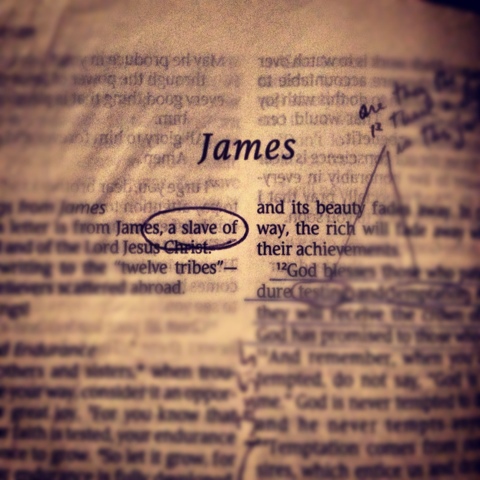James identifies wealth (also translated as abundance) in three forms: 1) Grain; 2) Clothing; 3) Gold or Silver.
It’s obvious here that James is very concerned about the priorities of his audience – “the twelve tribes scattered among the nations” – and their preoccupation with accumulation of wealth.
God’s not opposed to riches or wealth; he’s opposed to our priority being riches and wealth.
James is addressing our preoccupation with provision, status (or influence), and security.
Provision / Status / Security
Every one of these references is to the attitude of acquiring to excess or hoarding them.
“…Your wealth is rotting away…” A predominant measure of wealth in that day and age was grain. Remember Jesus’ parable of the man who built bigger barns to hold his grains? (Luke 12:13-21) It actually addresses this mentality of hoarding and storing it up.
“… your fine clothes are moth-eaten rags…” Clothes defined status, power and influence. See James 2:2 – how are the rich man and the poor distinguished? By their clothes. I suspect most average people had only 1 change of clothes at all. Remember when the Israelites wandered in the desert for 40 years? God specifically calls out one of his blessings in that their clothes didn’t fall apart. Here James references that fine clothes are moth-eaten, other translations say rotted. This implies that these clothes weren’t worn, but sitting somewhere – that the owner has more than he/she can wear and, in fact, never wears these. The last I checked, no moths ever ate any of my clothes while I was wearing them. No clothing article ever rotted while it was being worn and cared for. The implication of them being moth-eaten and rotted is that they were stored somewhere and never worn, used, touched, or cared for.
“… your gold and sliver have become worthless…” I believe the gold and silver reference to represent security for the future. James says that the gold and silver have become “worthless”. Other translations say they have “corroded”. Regardless, it’s an implication of one of two options. The first is along a similar theme as the first two –much excess and a long time in storage. While I’m quite aware gold and silver don’t rust – and I’m sure James was also aware – the second implication could be that the gold and silver would devalue and become worthless over time.
Isn’t this true anyway? In the end, isn’t everything worthless except our spirit? If we preoccupy ourselves on provisions, status, and security, then our spirit will spend eternity in hell. Just as James alludes to in verse 3 – “…the very wealth you were counting on will eat away at your flesh like fire.”
When we preoccupy ourselves with knowing and being known by Jesus, He promises to provide all that we need.
Luke 11:9-13 “7Ask, and it will be given to you; seek, and you will find; knock, and it will be opened to you. 8 For everyone who asks receives, and he who seeks finds, and to him who knocks it will be opened. 9 Or what man is there among you who, if his son asks for bread, will give him a stone? 10 Or if he asks for a fish, will he give him a serpent? 11 If you then, being evil, know how to give good gifts to your children, how much more will your Father who is in heaven give good things to those who ask Him!
Running After Papa…

